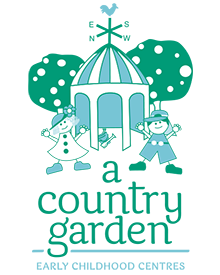Engaging your child in some form of early childhood education structure can offer a host of benefits. It lays the foundation for a lifetime of learning and personal development, not to mention introducing them to structure and new social interactions.
In Australia, parents can choose when to begin their child’s initial, formal education with either pre-kindergarten (pre-K) or kindergarten schools near them. But what really is the difference between the two?
In this article, our team at A Country Garden explain the exact meaning behind both pre-K and kindergarten, highlighting the differences and helping parents make an informed decision.
Pre-Kindergarten (Pre-K) Meaning
Pre-Kindergarten, often referred to as Pre-Kindy, typically refers to any early childhood education program designed for children before they enter kindergarten. To clarify pre-K meaning, it is a preparatory stage focusing on a child's overall development, including social, emotional, and cognitive skills, involving a range of play-based learning, self-exploration and sensory discovery.
Given its flexible, non-compulsory nature, you might ask questions like, ‘What age is pre-kindergarten?’ and ‘When does preschool start?’. Typically, pre-kindergarten programs are designed for children 3 to 5 years, but they can start much earlier. For example, at A Country Garden, our Montessori-based, pre-kindergarten programs are open to children from 15 months up to 5 years.
The structure and curriculum of Pre-Kindergarten in Australia work to foster a sense of creativity and develop essential life skills like communication and cooperation. As for 'when does preschool start,' it usually begins at the start of the calendar year, but some services also accept mid-year intakes.
Kindergarten Meaning
Kindergarten is the next step after pre-kindergarten and is more structured than pre-K, including a comprehensive curriculum that covers basic literacy, numeracy, and other foundational skills. The class activities for kindergarten often involve a mix of guided instruction, group activities, and independent play.
How old are children who attend kindergarten? As it is the first year of primary school, kindy students are typically between 4 and 5 years of age. At A Country Garden, we are one of the most popular kindy options in Toowoomba and a Queensland Government Approved Kindergarten Program. We ensure the highest calibre of education and nurturing in Australia by employing a blend of child-focused Montessori techniques along with the guidelines of the Early Years Learning Framework and National Quality Standards. For qualification, children must reach the age of four by July 31 of the year they plan to partake in the program and must participate at least two days weekly.
Pre-K & Kindergarten in the Australian Early Childhood Education System
Early childhood education consists of several stages across Australia, with certain steps varying based on the state where you live. For example, in some states, the meaning of pre-K and kindergarten is interchangeable, whereas in others, pre-kindergarten is a voluntary, before-school program, and kindergarten itself is the first year of primary school.
Each of these initial phases can play a vital role in a child’s development, equipping them with essential skills and knowledge.
General Differences Between Pre-Kindergarten and Kindergarten
Age Requirement:
Pre-Kindergarten: Children aged 3-4 years old.
Kindergarten: Typically for children aged 4-5 years old
Curriculum:
Pre-Kindergarten: Whilst including five learning areas on Montessori (Practical Life, Sensorial, Language, Mathematic Cultural) there is a natural focus on Practical Life activities, all of which support the development of social, emotional, and cognitive skills.
Kindergarten: A more structured curriculum that includes the five learning areas on Montessori (Practical Life, Sensorial, Language, Mathematic Cultural), the Kindrgarten Program also incorporates various activities which help develop your childs school readiness, with a strong emphasis of social and emotional readiness.
Class Activities:
Pre-Kindergarten: Class activities are Montessori-based, fostering independence, creativity and practical life skills.
Kindergarten: Class activities involve a mix of Montessori, guided instruction, group activities, and independent activity and play.
Overall Goals:
Pre-Kindergarten: To prepare children for kindergarten by developing social, emotional, and cognitive skills.
Kindergarten: To prepare children for primary school by equipping them with basic literacy, numeracy, and foundational skills as well as social and emotional skills.
Finding the Right Pre-K & Kindergarten Schools Near You
Choosing the most suitable pre-kindergarten and kindergarten schools near you can be a crucial decision for parents. Of course, you will need to consider your child’s age, developmental stage, and individual needs, as well as other factors like the school’s curriculum, teaching philosophy, and facilities.
As you review your options, you can start visiting schools, talking to teachers, and observing regular class activities for kindergarten and Pre-K, which can provide valuable insights into the environment and help you make an informed decision.
If you would like to learn more about our pre-K and kindy programs available in Toowoomba, please contact us at A Country Garden today.





